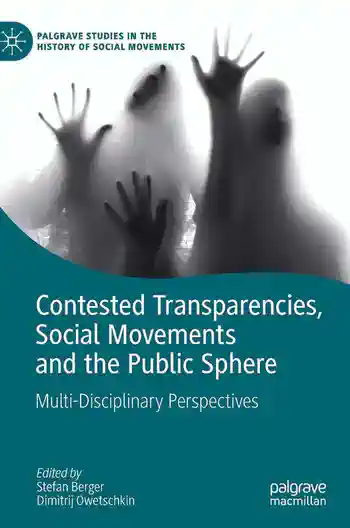 Cover
CoverTransparency’s Trap: Problems of an Unquestioned Norm
In: Stefan Berger and Dimitri Owetschkin (eds.): Contested Transparencies, Social Movements and the Public Sphere. Multi-Disciplinary Perspectives. London: Palgrave Macmillan, 35–54. 2019Abstract
Starting with the observation that transparency has become a concept so familiar that one hardly ever stops to consider the presuppositions and consequences of its usage, the chapter analyses transparency demands as a specific way of exercising power. By doing so, the author shows that the intrinsic logic of transparency leads to paradoxical effects. Any attempts to realize complete transparency undermine its own preconditions. As Vogelmann argues, instead of providing more visibility and clarity, transparency makes its objects “invisible” and the intensification of transparency demands produces self-censorship. The chapter concludes that transparency claims undermine the distinction between the private and the public and threaten the individual autonomy.
About the Edited Volume
This edited collection examines the multi-faceted phenomenon of transparency, especially in its relation to social movements, from a range of multi-disciplinary viewpoints. Over the past few decades, transparency has become an omnipresent catch phrase in public and scientific debates. The volume tracks developments of ideas and practices of transparency from the eighteenth century to the current day, as well as their semantic, cultural and social preconditions. It connects analyses of the ideological implications of transparency concepts and transparency claims with their impact on the public sphere in general and on social movements in particular. In doing so, the book contributes to a better understanding of social conflicts and power relations in modern societies. The chapters are organized into four parts, covering the concept and ideology of transparency, historical and recent developments of the public sphere and media, the role of the state as an agent of surveillance, and conflicts over transparency and participation connected to social movements.